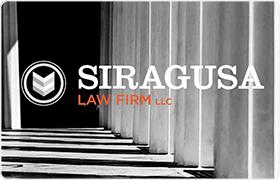Mercer County, NJ Divorce & Family Law Lawyers
Sponsored Law Firm
-
 x
x

Click For More Info:
-
Siragusa Law Firm LLC
678 Route 202/206 Building 5, Suite 5 Bridgewater, NJ 08807» view mapDivorce & Family Law Creative Thinking. Exceptional Results.
At Siragusa Law Firm, we take our responsibility seriously. We are passionate about helping you, making sure to guide you through whatever legal matter you face.
908-218-1100
Brian James Duff
✓ VERIFIEDI am privileged to be able to practice law in the local community where I was raised and still reside. I am proud to be able to offer quality, afforda... (more)
Robert G. Swan
✓ VERIFIEDRobert G. Swan is a former Assistant Prosecutor in Mercer County who now has a general law office that places emphasis on Criminal, Family, Divorce, B... (more)
Candyce I. Smith-Sklar
✓ VERIFIEDCandyce Sklar-Smith is a practicing Bankruptcy lawyer with over 10 years of experience. Ms. Sklar-Smith is licensed in both New Jersey & Pennsylvania.
FREE CONSULTATION
CONTACTFREE CONSULTATION
CONTACT Lynette Siragusa Bridgewater, NJ
Lynette Siragusa Bridgewater, NJ Practice AreasExpertise
Practice AreasExpertise



